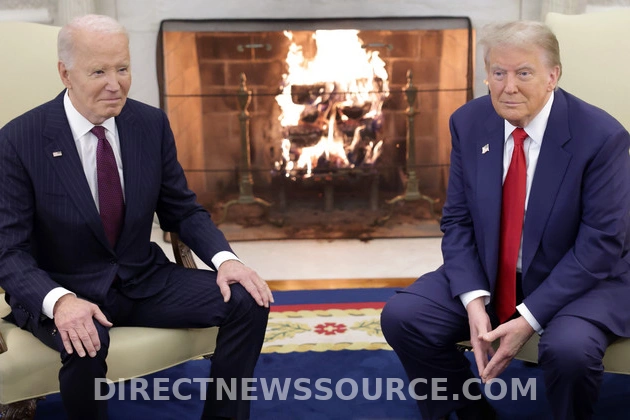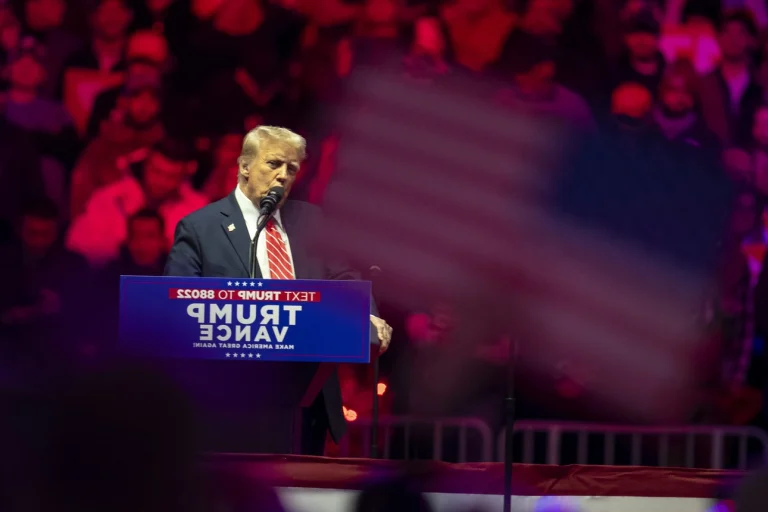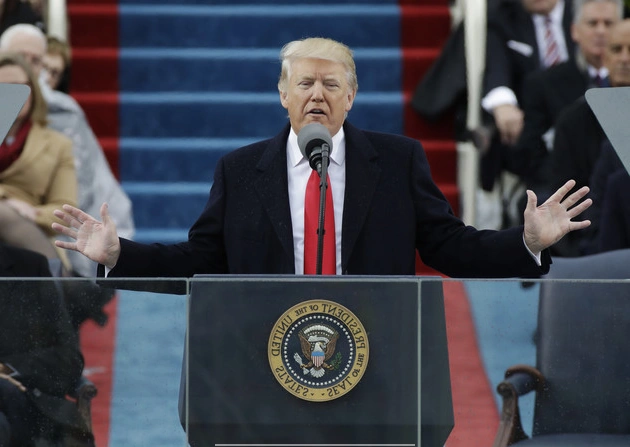
The breakdown in Congress’ budget negotiations is causing turmoil in the transition to the new presidency and the arrangements for President-elect Donald Trump’s impending inauguration, as Washington grapples with the looming possibility of a government shutdown shortly after midnight on Friday.
Recently, federal agencies commenced briefing the Trump transition teams, known as “landing teams,” significantly behind schedule compared to previous transitions. However, if an agreement is not reached by Congress in the next few days, these agencies may have to furlough a significant portion of their staff and close down the offices where transition activities are underway, hindering the incoming administration’s access to crucial documents and further impeding the already delayed handover preparations.
Concerns arise as Trump’s team navigates a precarious phase in transition and inauguration planning due to their utilization of private communication tools, refusal of federal cybersecurity assistance, and operation from Mar-a-Lago, Trump’s Florida estate, as highlighted by Ann O’Leary, who spearheaded Hillary Clinton’s transition efforts in 2016.
“A government shutdown, at the very least, will exacerbate the disorder and vulnerability of the U.S. government,” she cautioned.
A spokesperson from the Office of Management and Budget (OMB) cautioned that such a shutdown “would disrupt a wide range of activities associated with the orderly transition of power,” without specifying the exact impact on programs and personnel.
Amidst the uncertainty, agency personnel remain uninformed about the ramifications of a potential shutdown on their collaboration with the Trump transition, leaving them in the dark about how their work may be affected, according to a State Department official speaking anonymously to POLITICO.
Although Congress seemed on the brink of averting a shutdown by passing a bipartisan continuing resolution that extended government funding into the following year and reinstated various expired programs, Trump’s team, led by Elon Musk, upended negotiations by opposing the bill on social media and urging GOP leaders to demand additional concessions, including lifting the debt ceiling temporarily or permanently. This stance has thrown Republican leaders into disarray as the deadline to fund the government approaches on Friday.
In the event of a shutdown, most federal employees would not only be prohibited from meeting in person with Trump transition officials but also from communicating with them via phone or email from home. Designating some personnel as “essential” under the Antideficiency Act could exempt them from furloughs, but as noted by Seth Harris, a former acting Labor Secretary involved in multiple Democratic presidential transitions, most transition activities are unlikely to meet the criteria, except for those related to national security.
“This further complicates a seamless transition,” remarked Democratic health policy consultant Chris Jennings, who contributed to transition teams for Presidents Bill Clinton, Barack Obama, and Joe Biden. “It delays their ability to effectively assess the current landscape, slowing down both policy and personnel evaluations as they finalize key appointments and executive orders.”
Although few anticipate a prolonged shutdown leading up to Inauguration Day on Jan. 20, lawmakers and experienced transition personnel emphasize that even a brief disruption could impact ongoing preparations.
On Capitol Hill, Reps. Rosa DeLauro (D-Conn.) and Steve Cohen (D-Tenn.) voiced concerns about the implications of a shutdown on staffing for Trump’s inauguration at the Capitol next month.
“Funds were allocated for inauguration planning,” DeLauro noted regarding the stalled bipartisan package extending government funding until March. “Now, those funds may be jeopardized.”
Adrienne Elrod, overseeing talent and external relations for Biden’s 2021 Presidential Inaugural Committee, warned that furloughs could disrupt various aspects of the grand event.
“Who will distribute inauguration tickets to congressional offices? Who will manage ticket distribution to constituents? Who will coordinate with individuals on the stage during the swearing-in? Will there be ample Capitol Police presence for security? Will there be support for performers and speakers?” she questioned.
John Goheen, spokesperson for the National Guard Association, explained that while the full-time security personnel for the inauguration are typically unaffected by government shutdowns, logistical staff behind the scenes could face disruptions.
“The National Guard is deeply involved in planning, including unit deployment for security, which began weeks ago. It’s crucial to notify states and personnel promptly,” he emphasized.
Beyond the inauguration implications, O’Leary highlighted the security risks posed by delays in transition due to a potential shutdown and lack of federal cooperation, citing the 9/11 Commission report, which underscored the adverse impact of delays in the 2000 transition on national security appointments and information sharing.
“The national security jeopardy is not speculative,” O’Leary emphasized. “Historical evidence necessitates preventing a recurrence of such detrimental delays.”















